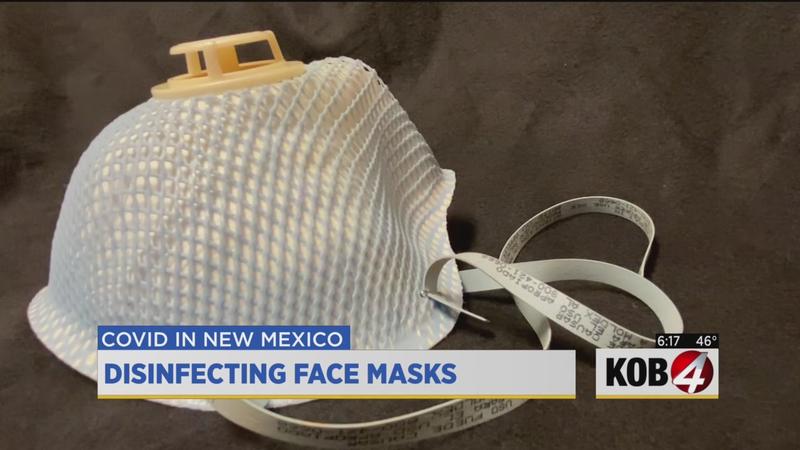UNM researchers study dry heat and its effect on decontaminating N95 masks
[anvplayer video=”5030666″ station=”998127″]
ALBUQUERQUE, N.M. — Two scientists at the University of New Mexico’s Center for Global Health published a study on dry heat and its effect on decontaminating used N95 masks.
When the COVID-19 pandemic first hit, N95 masks became the hottest thing on the market. It quickly resulted in a shortage pushing medical frontline workers to reuse the masks – and turn to pricey methods to kill the virus.
Dr. Steven Bradfute and Dr. DJ Perkins launched a study to find an inexpensive way to kill the virus on a used mask.
“One of the things we wanted to test was simple dry heat deactivation. So basically you put a mask in an oven and you bake it. We wanted to see whether or not that would actually eliminate the actual virus in a laboratory setting,” said Dr. Bradfute.
The professors used the real SARS-CoV-2, but they found heat alone did not kill all the virus even at temperatures of more than 160°F.

"It’s very likely that the dry heat probably does inactivate some of the virus and probably quite a lot of it, but since it’s such an important piece of PPE, and it’s close contact to respiratory system, we were looking for complete deactivation,” said Dr. Bradfute.
Dr. Perkins added, “We also allowed the masks to sit at room temperature for five days with no processing, without either moist heat or dry heat. And after simply sitting at ambient or room temperature for five days, there was still viable virus on some of the masks.”
It wasn’t the successful outcome they wanted, but they say this is useful information for the future. It could help to know what works and what doesn’t should a situation like this ever come around again. Hopefully, it won’t.
To learn more about the study, click here.